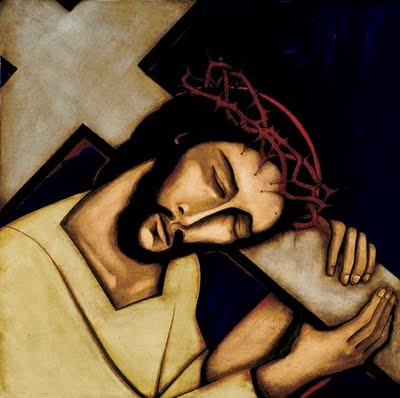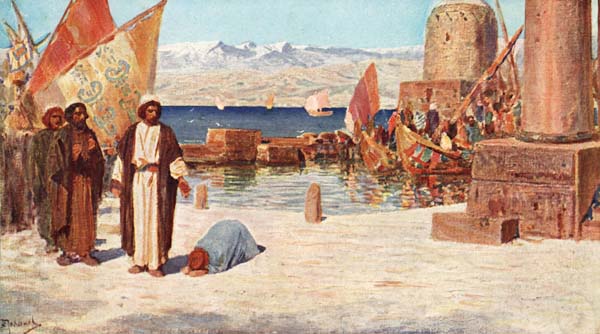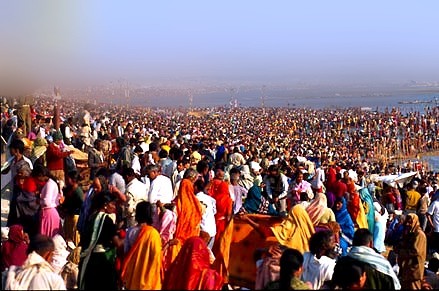Pentecost 16B,
September 13, 2015
 Mark 8:27-38 27Jesus went on with his disciples to the
villages of Caesarea Philippi; and on the way he asked his disciples, “Who do
people say that I am?” 28And they answered him, “John the Baptist; and
others, Elijah; and still others, one of the prophets.” 29He asked them, “But who do you say that I am?”
Peter answered him, “You are the Messiah.” 30 he sternly ordered them not to tell anyone about him.
Mark 8:27-38 27Jesus went on with his disciples to the
villages of Caesarea Philippi; and on the way he asked his disciples, “Who do
people say that I am?” 28And they answered him, “John the Baptist; and
others, Elijah; and still others, one of the prophets.” 29He asked them, “But who do you say that I am?”
Peter answered him, “You are the Messiah.” 30 he sternly ordered them not to tell anyone about him.
31Then he began to teach them that the Son of
Man must undergo great suffering, and be rejected by the elders, the chief
priests, and the scribes, and be killed, and after three days rise again. 32He said all this quite openly. And Peter took
him aside and began to rebuke him. 33But
turning and looking at his disciples, he rebuked Peter and said, “Get behind
me, Satan! For you are setting your mind not on divine things but on human
things.”
34He called the crowd with his disciples, and
said to them, “If any want to become my followers, let them deny themselves and
take up their cross and follow me. 35For
those who want to save their life will lose it, and those who lose their life
for my sake, and for the sake of the gospel, will save it. 36For what will it profit them to gain the whole
world and forfeit their life? 37Indeed,
what can they give in return for their life? 38Those who are ashamed of me and of my words in
this adulterous and sinful generation, of them the Son of Man will also be
ashamed when he comes in the glory of his Father with the holy angels.”
 Remember hearing these words: “Pencils down. Turn your tests
face down and pass them in.” Anyone who has ever sweated through a test and
needed just one more minute to get the answer right will probably feel some
jolt of anxiety just from remembering days when you had to take tests. I was
one of those kids who mostly didn’t mind the taking of the test itself. What I
hated was getting the answer wrong, especially if I was sure my answer was
right and then it turned out I was mistaken. Thank goodness those days of testing
are over for me.
Remember hearing these words: “Pencils down. Turn your tests
face down and pass them in.” Anyone who has ever sweated through a test and
needed just one more minute to get the answer right will probably feel some
jolt of anxiety just from remembering days when you had to take tests. I was
one of those kids who mostly didn’t mind the taking of the test itself. What I
hated was getting the answer wrong, especially if I was sure my answer was
right and then it turned out I was mistaken. Thank goodness those days of testing
are over for me.
Today in our gospel, it sounds like Jesus is testing his
followers. “Who do people say that I am?” he asks. “John the Baptist! Elijah!”
they shout out. “Close, but not quite.” Jesus asks the disciples, “Who do you
say that I am?” and Peter, at the head of the class, says, “You are the
Messiah.” Gold star for Peter. That’s right. Messiah.
 |
| The site of the Grotto dedicated to the god Pan (Caesarea Philippi) |
Of course, Jesus had been giving them hints. He had cured the
blind, the deaf, the lame. He had healed the sick and he was a light for all
nations. There was just one thing left to do to fit all the descriptions of a
messiah- free the captives by kicking out the enemy. But they were standing in
Caesarea Philippi- a city built as a physical reminder of the close ties
between the Caesar in Rome and Philip of the Herod family. What better place to
start the military campaign than by doing a little reconnaissance of the future
battleground. And make no mistake, reconnaissance would have been necessary
given the layout of the city, which was nearly impossible to attack but was
historically strategic to conquering the region.
Peter is waiting for his gold star for his right answer, but
he’s also waiting for Jesus to lay out how they’re going to wage war against
Caesarea Philippi and all that it stands for.
 Instead, Jesus starts talking about how the Son of Man must
suffer, die, and then rise again. What? What curriculum is Jesus teaching from?
What book has he been reading? Even a 5-year-old would have known that’s not
how it goes. In the book of Daniel, the Son of Man leads the armies, kicks some
behinds, and then reigns in peace. So Peter takes him aside to correct him, to
get Jesus back on the right track.
Instead, Jesus starts talking about how the Son of Man must
suffer, die, and then rise again. What? What curriculum is Jesus teaching from?
What book has he been reading? Even a 5-year-old would have known that’s not
how it goes. In the book of Daniel, the Son of Man leads the armies, kicks some
behinds, and then reigns in peace. So Peter takes him aside to correct him, to
get Jesus back on the right track.  |
| A Satan would have been more like an undercover agent than devil with horns |
 |
| Jesus Carries the Cross by artist Michael D. O'Brien |
Jesus came to be a different kind of messiah. He came not to
bring suffering and destruction but to suffer and be destroyed, and then, by
his suffering and death, to kill off the powers of death and evil and
oppression. Death and evil and destruction would not have the last word. Instead,
resurrection and life and love triumph. And they triumph because they are born,
not of domination and oppression, but of self-sacrifice and humbleness. This is
called the way of the cross- to choose to suffer instead of conquer, to conquer
through love, to win through what everyone else considers losing.
As Christians, the way of the cross is one of the hardest things
to understand and one of the most difficult practices to follow. With Peter, we
might be tempted to ask God to take us down a different path. It is human to
want to fight back when we are hit, to want to get back at those who hurt us
and our loved ones. We want to win. But following Jesus means that we try to
imitate him, to take on his ways as our ways.
 So it may be that tests lurk around every corner, in every
decision we make, as we pick between following the human instincts of retaliation,
violence, and power and the ways of Jesus and the cross. Trusting in God’s
enduring love and grace for all people, let us be ready to learn to take new
and surprising paths with Jesus.
So it may be that tests lurk around every corner, in every
decision we make, as we pick between following the human instincts of retaliation,
violence, and power and the ways of Jesus and the cross. Trusting in God’s
enduring love and grace for all people, let us be ready to learn to take new
and surprising paths with Jesus. 










